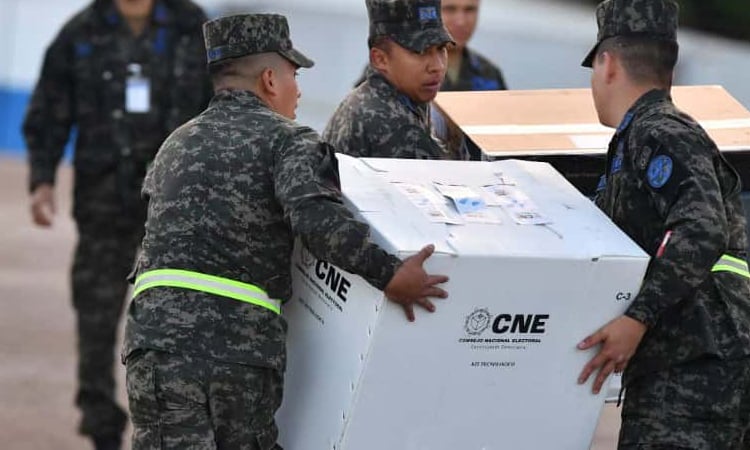News Flash
News Flash

TEGUCIGALPA, Nov 26, 2025 (BSS/AFP) - A president overthrown in his pyjamas, another imprisoned in the United States for drug trafficking, and some of the world's best coffee: here are five key facts about Honduras, a Central American country which will elect a president and lawmakers on Sunday.
- Pyjama coup -
In the early hours of June 28, 2009, soldiers supported by businessmen and right-wing politicians forcibly removed leftist President Manuel Zelaya from his bed at gunpoint.
Zelaya, a friend of Venezuela's late socialist firebrand Hugo Chavez and accused of seeking to extend his power, was put on a plane in his pyjamas and sent to Costa Rica.
The coup deeply divided Hondurans, who elected Zelaya's wife, Xiomara Castro, as their first female president 14 years later.
Sunday's election will decide whether the left gets four more years in power or Honduras follows Argentina and Bolivia in turning to the right.
- 'Narco-state' -
In April 2022, almost three months after leaving the presidency, Juan Orlando Hernandez was extradited to the United States on a US Drug Enforcement Administration plane.
Hernandez was accused by the United States of turning Honduras into a "narco-state" and sentenced in 2024 to 45 years in prison.
His case symbolized the cozy ties between Honduran politicians and drug cartels. Politicians from all parties have been implicated in the drug trade.
Once a transit point for cocaine from Colombia, Honduras is now also a producer of coca, the plant used to make cocaine.
- Gangland -
Honduras is one of the most violent countries in Latin America, with the notorious transnational Barrio 18 and MS-13 gangs sowing terror.
A state of emergency in effect since December 2022 has significantly reduced the homicide rate. But at 26.8 per 100,000 inhabitants, it remains more than five times that of the United States.
Human rights groups say the state of emergency, modelled on El Salvador's ferocious anti-gang crackdown, has led to rampant human rights abuses.
- Major Mayan site-
The city of Copan, 300 kilometers (186 miles) northwest of the capital Tegucigalpa, was one of the most important sites of the ancient Mayan civilization.
Now in ruins, it comprised around 1,000 buildings, an acropolis and monumental squares.
The UN cultural agency UNESCO declared Copan a World Heritage Site in 1980.
- Migration -
Many Hondurans have fled grinding poverty and violence to the United States, including minors fearing forced recruitment by gangs.
That escape route is no longer a viable option under President Donald Trump.
His administration has deported around 27,000 Honduran migrants and revoked the Temporary Protected Status of a further 51,000, making them vulnerable to being expelled.
The crackdown has dealt a severe blow to the economy of a country that received $10 billion in remittances from overseas citizens in 2024, representing 27 percent of GDP.